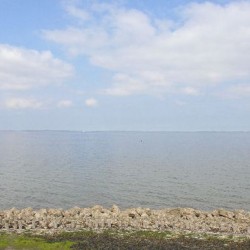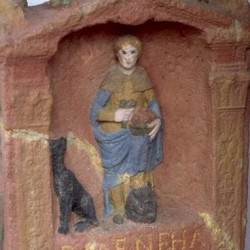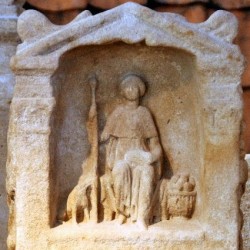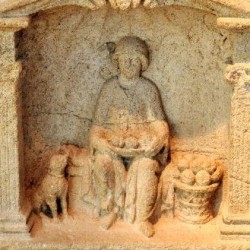Colijnsplaat
Q98113930Colijnsplaat: site of an ancient temple in the Netherlands, dedicated to Nehalennia. The ancient name may have been Ganuanta.
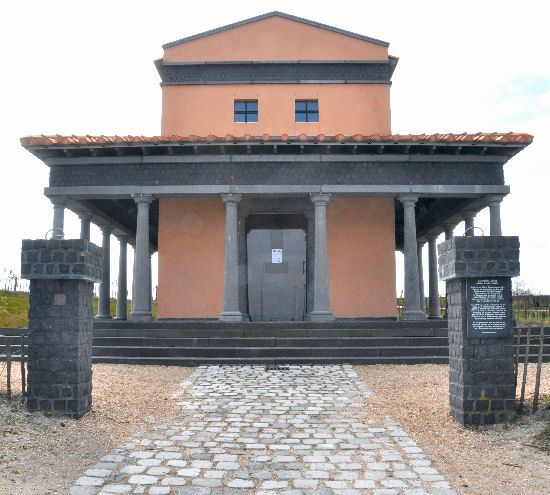
Ganuenta is only known from an inscription on one of the votive altars dedicated to the ancient goddess Nehalennia, which were discovered in 1970-1974 in the Eastern Scheldt estuary, about 1½ kilometers northwest of Colijnsplaat. It has been argued that Ganuenta was the capital of the Frisiavones, but it is likely that it was in fact in Menapian territories, and that Frisiavones lived, in fact, a bit more to the north.
As the waters of the Scheldt and the sea have swallowed up this area, hardly anything is known about this place, which may once have been an important international port.
No votive altar can be dated after 227, and archaeologists have discovered almost nothing from Late Antiquity in this part of the Netherlands. This suggests that the site and the area were abandoned at some moment in the mid-third century. There is indeed evidence for changes in the ecological system, although ideas about large transgressions ("Duinkerke 2") have now been abandoned.
In itself, the ecological changes would not have been disastrous, but the inhabitants of the coastal region of Germania Inferior had been extracting salty peat from the mud flats, which was used to produce salt. The natural defense against the water had disappeared, and the sea could now easily destroy the coast.
